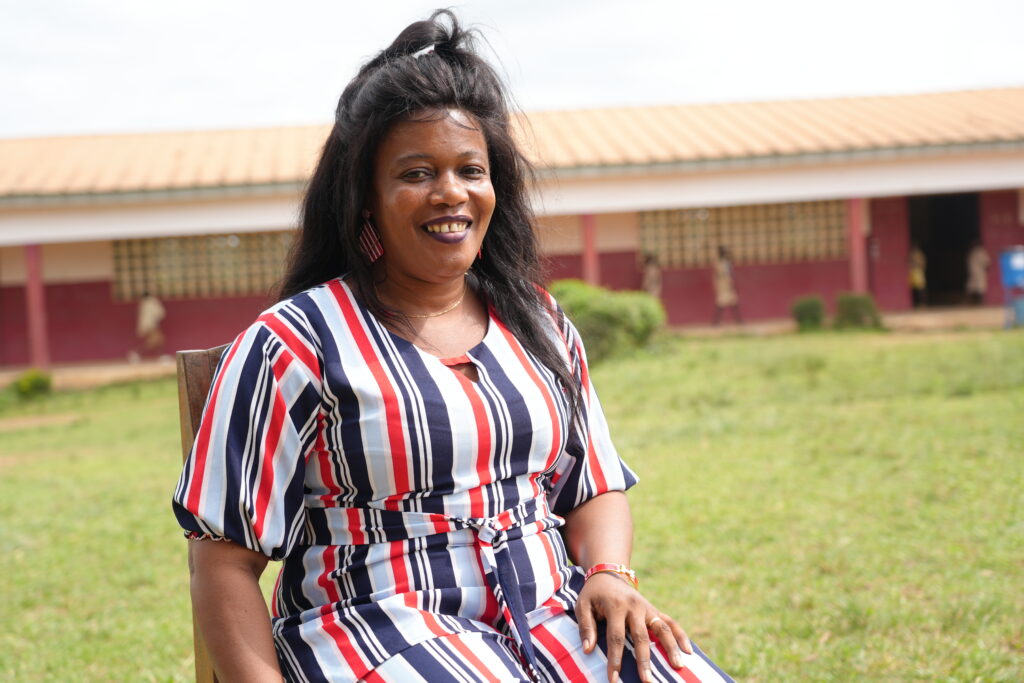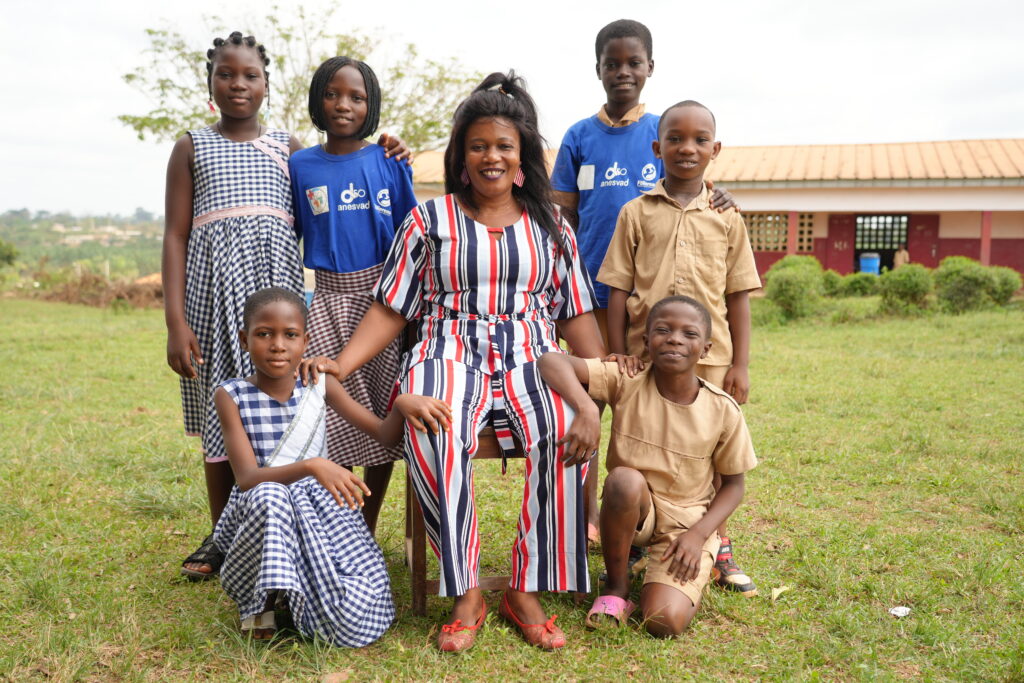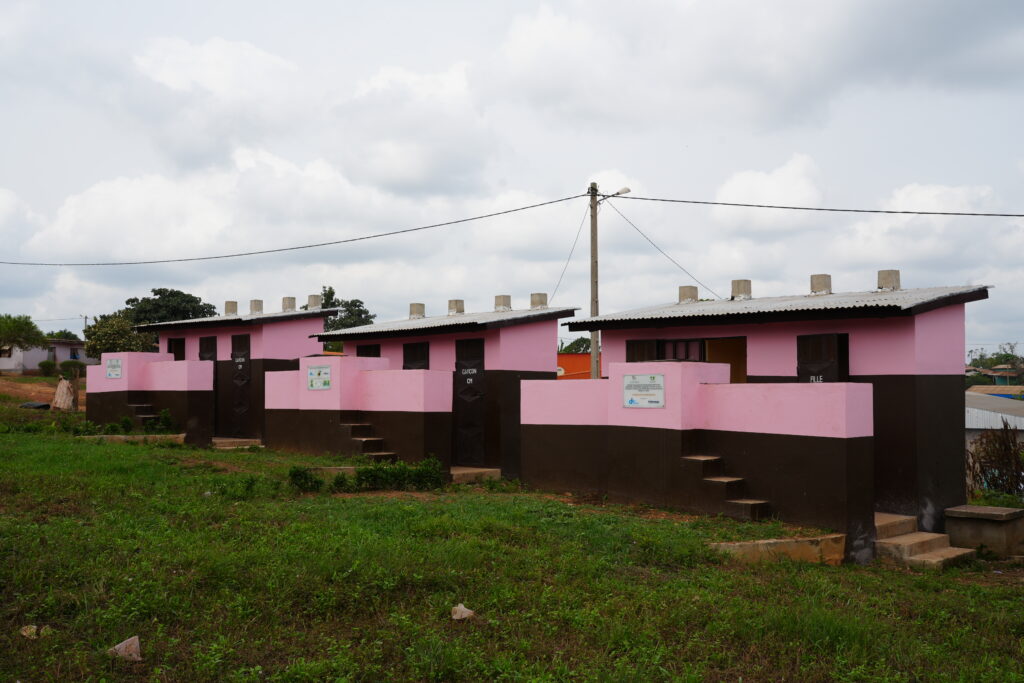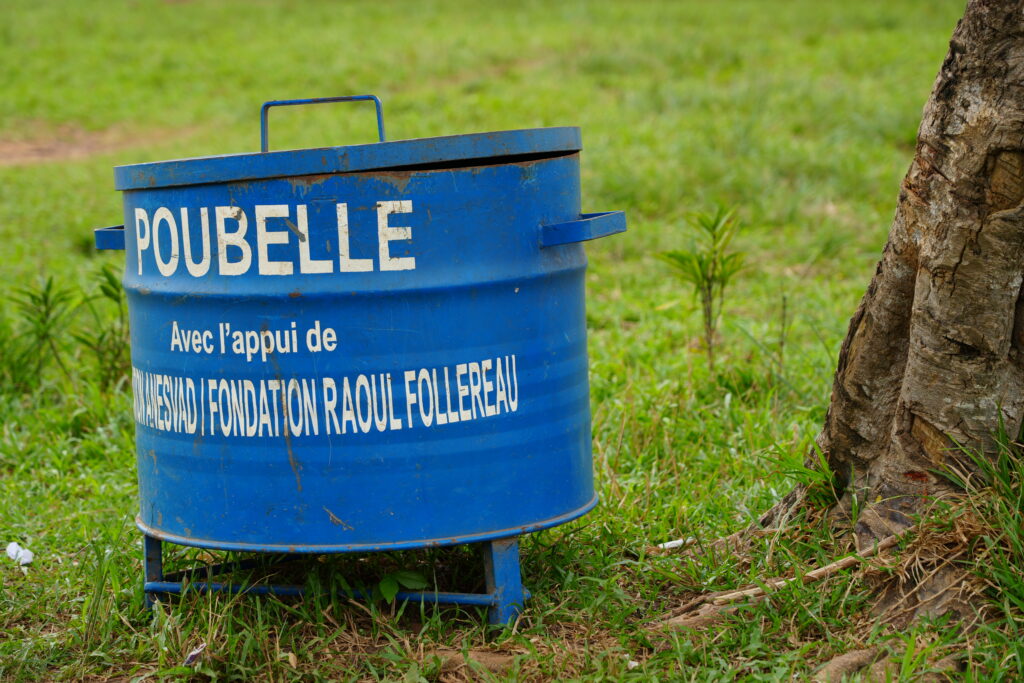Bodie Solange, headmistress of Chiépo college
"We used to have a lot of diseases, but with the construction of latrines and the water advice given to the children, the health of the whole population has improved."


Classes at the school in Chièpo, Côte d’Ivoire, begin at 7 o’clock in the morning. Depending on the students’ age, the first class of the day may be maths, French or language. However, for the past few years, students have had to clean the playground before sitting at their desks:
“When they arrive at school, the pupils drop off their school bags and then, together, they pick up the rubbish in the playground and put it in the bins. A team is formed and each student knows his or her responsibilities and has to take on a task. In the afternoon, when it isn’t so hot, they empty the bins and burn the rubbish. When they’ve finished, they wash their hands“, says Bodie Solange. Bodie has been headmistress of this school of over 800 students for three years, but she has been teaching there for much longer.
She is therefore the best person to tell us about the improvement in hygiene habits that has been achieved thanks to the work of community health workers such as Fatim and the support of the Anesvad Foundation and the Raoul Follereau Foundation. Since the project began, the school playground has become cleaner, the headmistress tells us. Moreover, a health club has been set up which, among other things, cleans the toilets twice a week, on Wednesdays at 11am and Fridays at 4.30pm:
“They’re a team and when we go to the classes and tell them they have to clean the toilets, they do it. It’s great that they take on this job”.


Improve hygiene habits to prevent the spread of infections or NTD.
The trainings carried out are part of WASH (Water, Sanitation and Hygiene), a global strategy promoted by international agencies, governments, organisations and civil society to ensure universal, affordable and sustainable access to water, sanitation and hygiene.
The objective is clear: improve hygiene habits and thereby reduce the spread of infections and NTDs (Neglected Tropical Diseases). Bodie Solange reminds us of the need for such training:
“Since the Raoul Follereau and Anesvad foundations came to Chiépo, we’ve become more aware of these issues. We used to have a lot of diseases, but with the construction of latrines and the water advice given to the children, the health of the whole population has improved. Now we don’t hear so much about these things, about tummy aches, welts and so on. We’re really very grateful”.

